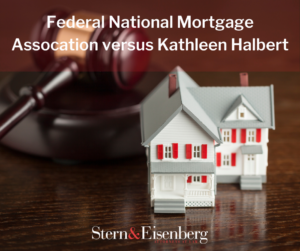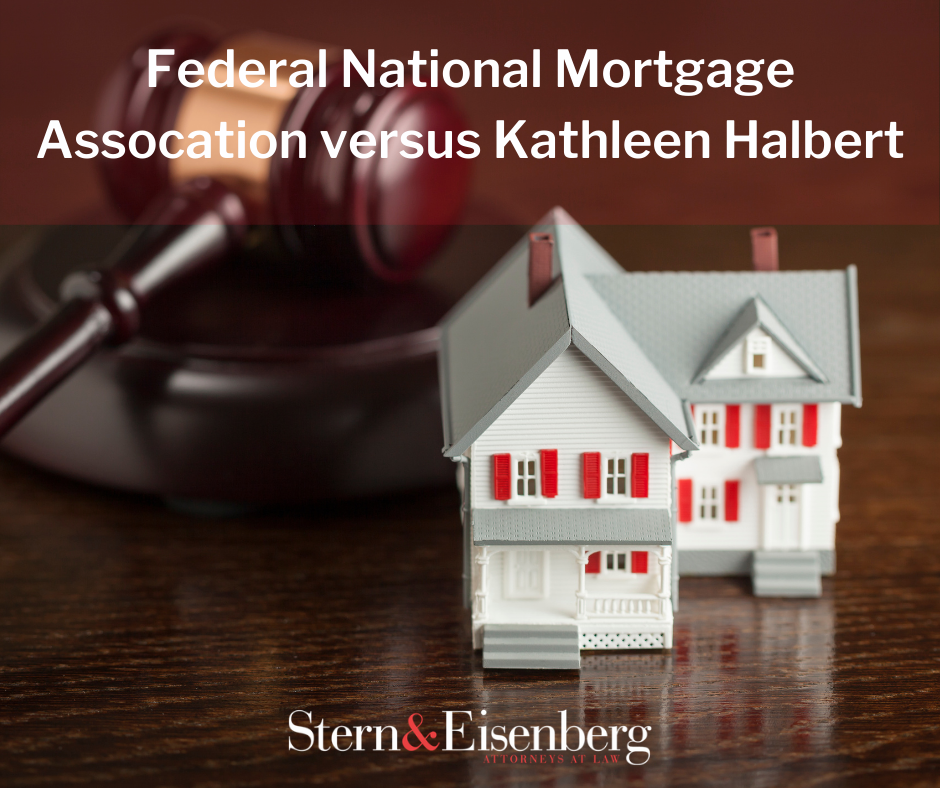By: Salvatore Carollo, Esquire

On April 9, 2021, the New Jersey Appellate Division issued an unpublished opinion in Federal National Mortgage Association v. Kathleen Halbert, 2021WL 1327160 which affirmed the trial court’s order granting a judgment of eviction in favor of plaintiff and remanded for the court to enter an amended judgment awarding defendant/tenant an additional sum for rent paid during a period of uninhabitability in 2018. The crux of defendant’s appeal involved her challenge with a part of the trial court order directing the plaintiff to pay her $9,000.00 for nine-months’ rent she paid prior to the eviction because the premises had been deemed uninhabitable since January of 2019.
The appellate court took particular note of the evidence presented at trial which in relevant part, established that defendant’s counsel identified fourteen “defective conditions” in a letter submitted to plaintiff’s counsel on December 1, 2016 that he asserted rendered the home uninhabitable. These conditions included damage to the property from pipes that burst due to cold weather, a leaking hot water heater, a septic tank that required cleaning in accordance with the “the town ordinance,” two of three bathrooms that did not function, and an inoperable oven, dishwasher, washer-dryer. Defendant’s correspondence requested remediation of the conditions, but plaintiff failed to take any action in response to the request. Defendant’s counsel submitted additional letter and email requests to plaintiff for remediation which continued to go ignored, including a January 9, 2018 email informing plaintiff’s counsel that the burst pipes caused the septic system to overflow causing sewage to flow into the first floor of the home.
Testimony from the township fire marshal and plaintiff’s own real estate broker demonstrated that the home was found to be “unsanitary for human occupancy, due to the septic backup,” and that plaintiff permitted the property to become unfit for human occupancy in January 2018 and likely prior to that date. Following a bench trial, the court found that the “home is simply uninhabitable,” and that it makes no sense for defendant to live on the second floor, and put water in the toilet so it flushes.” The court also found the home “beyond disgusting,” and determined the believable evidence” established the “property should be vacated due to mold remediation” and that “[t]here’s no question … the place has to be emptied.” As a result, the trial court granted plaintiff’s request for an order of eviction pursuant to N.J.S.A. 2A:18-61.1(g)(2), which permits removal of a tenant where the landlord “seeks to comply with local or State housing inspectors who have cited [the landlord] for substantial violations affecting the health and safety of tenants and it is unfeasible to so comply without removing the tenant. The court also concluded that, as a condition of defendant vacating the premises, plaintiff must reimburse defendant for the rent she paid ($9,000) for the nine-month period from January 2019 through the September 2019 trial. The court did not offer a reason for limiting the rental reimbursement to that period.
On appeal, the court considered the narrow issue raised by defendant that the trial court erred by limiting her recovery of rent paid to the nine-month period prior to trial. The tenant argued that she was entitled to a return of rent paid while the home was uninhabitable and that the court’s award was not supported by the evidence, which shows the property was uninhabitable for the twenty-one-month period commencing on January 8, 2018, when the pipes burst in the home. The appellate court found that the evidence overwhelmingly established that the deplorable conditions at the property rendered it uninhabitable in January 2018 and those conditions were never remediated by plaintiff. Further, the appellate court found no evidentiary support for the trial court’s unexplained decision to limit the return of rent to defendant to the nine-month period between January 2019 and the trial in September. Accordingly, the appellate court affirmed the trial court’s order directing that defendant vacate the property and requiring plaintiff to pay defendant $9,000 for the rent paid from January 2016 through September 2019 and remanded for the lower court to determine the amount of rent paid by defendant from January 2018 through December 2018 and for entry of an amended final judgment also awarding defendant the full amount of rent paid during that period.
